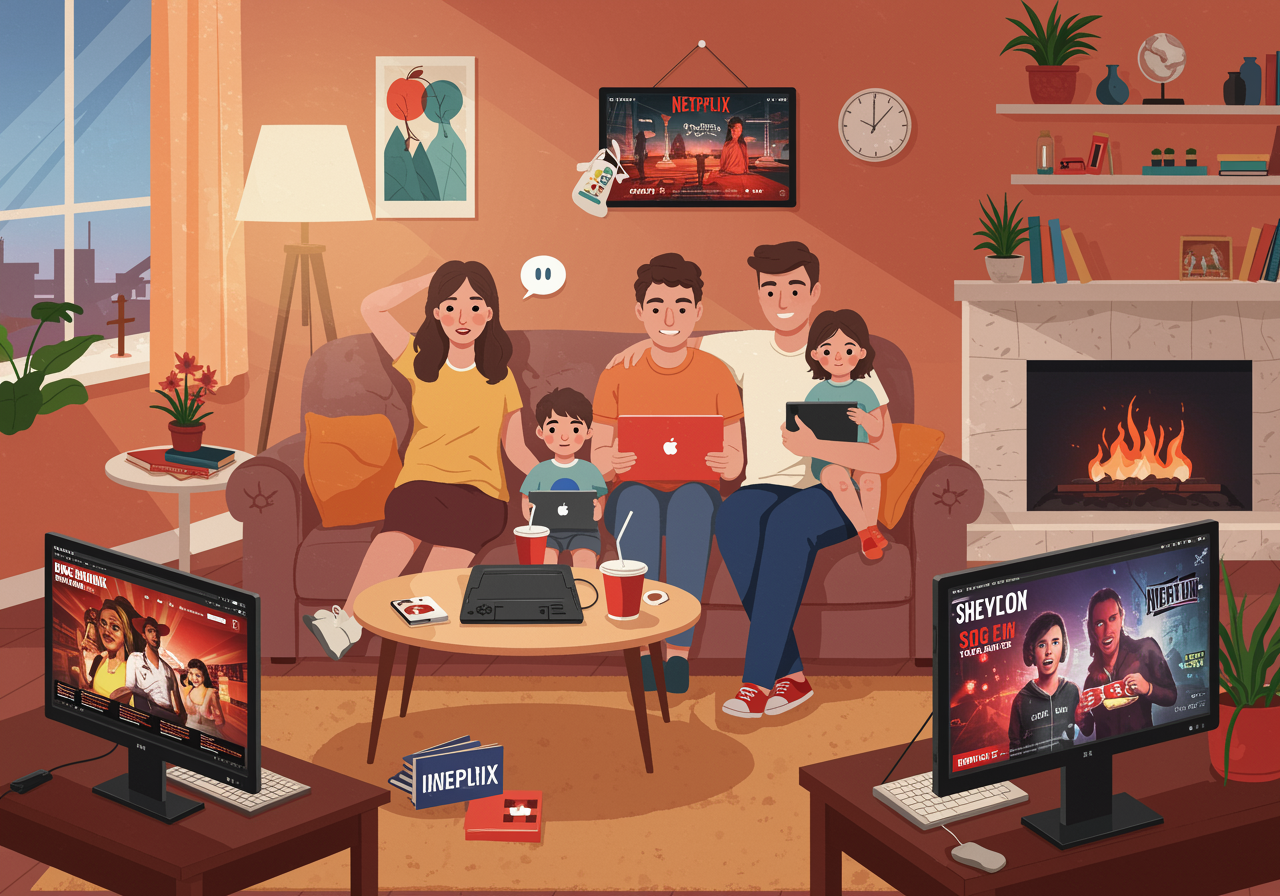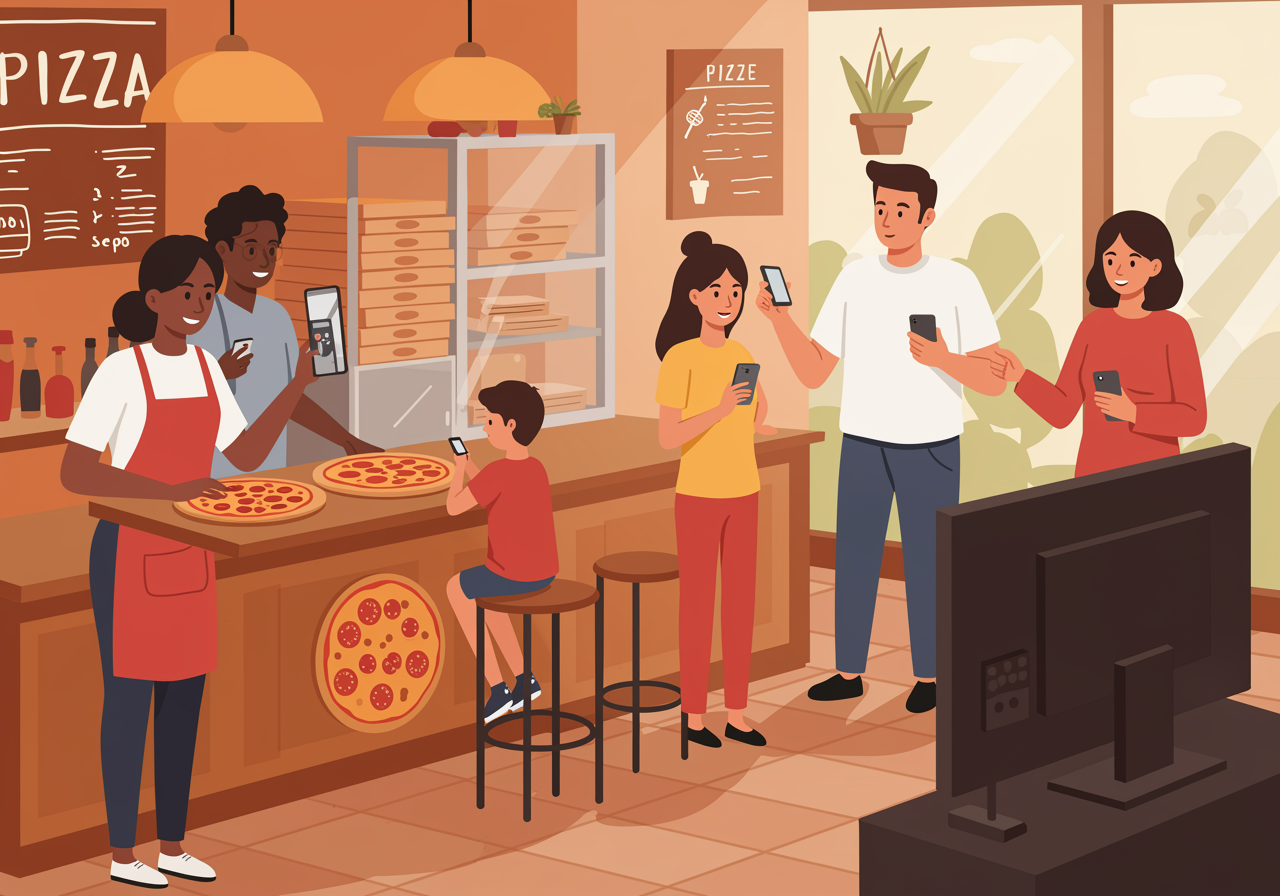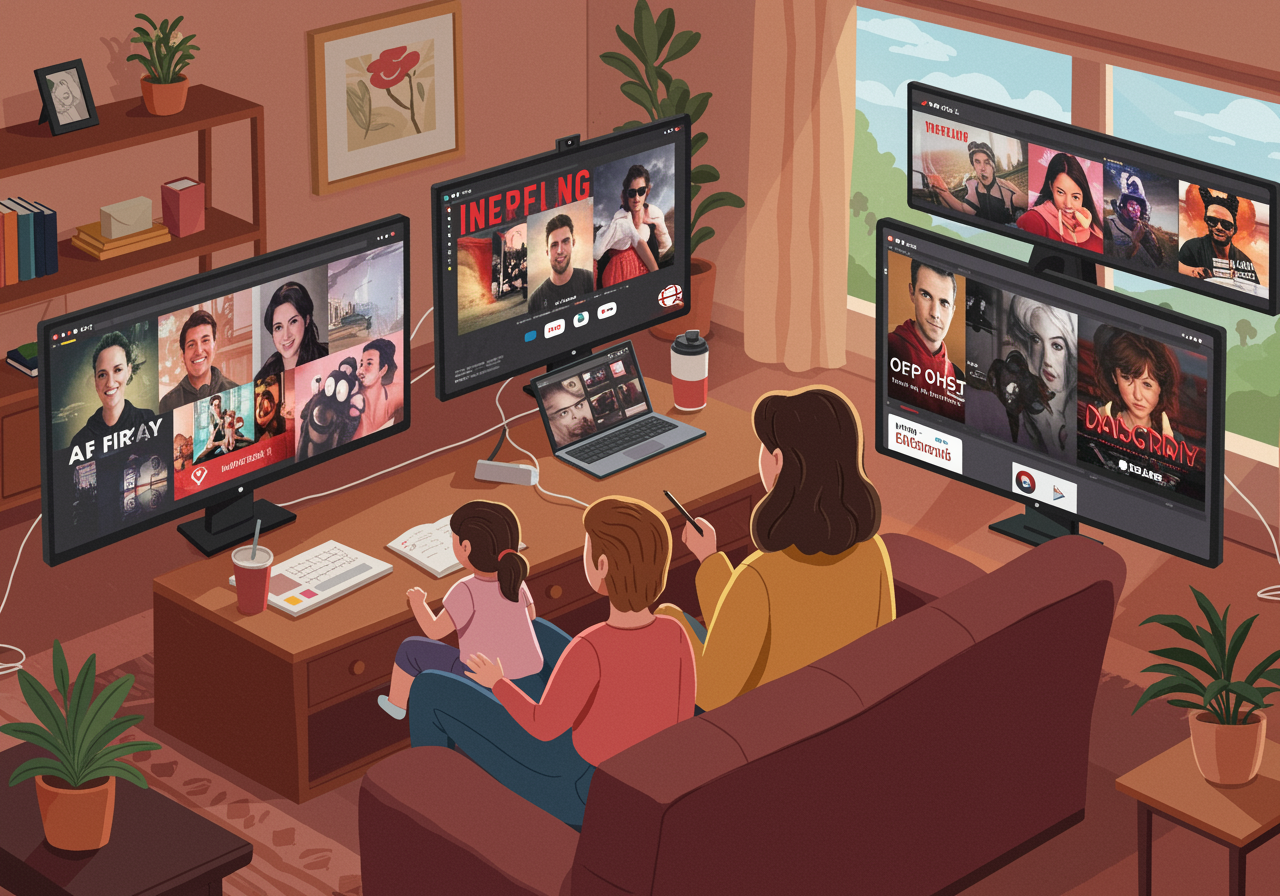The Great TV Revolution: How Your Binge-Watching is Changing Everything!
Discover how your streaming habits are secretly reshaping the entertainment world
Ever wonder why Netflix keeps suggesting weird shows or why your favorite series got canceled? Your viewing habits are literally changing how TV works!
Overview
Think about how you watch TV now versus how your parents did as kids. They had to wait a whole week for the next episode and watch whatever was on at a specific time! Today, you can binge an entire season in one sitting, watch on your phone, or discover shows through TikTok clips. These massive changes in how we watch are completely reshaping what gets made, who makes it, and how stories get told. Understanding this helps families see how their entertainment choices have real power in shaping the future of storytelling.

Understand in 30 Seconds
Get up to speed quickly
- Your Clicks = TV's Future: Every show you watch, skip, or binge tells streaming companies what to make more of. Your viewing data is like votes for what entertainment should exist.
- Algorithms Are New TV Guides: Instead of flipping channels, smart computers now suggest what to watch based on your habits. This changes which shows become popular and which ones disappear.
- Binge Culture Changes Stories: Since people can watch entire seasons at once, writers create different types of cliffhangers and story pacing than they did for weekly TV.
- Global Audiences, Global Stories: Streaming platforms reach worldwide audiences instantly, so shows from different countries and cultures are becoming more popular than ever before.
Real Life Scenario
Situations you can relate to
Imagine your family runs a pizza shop, and you notice customers are ordering more online than calling. You'd probably focus more on your website and delivery, right? That's exactly what's happening with TV! When Netflix sees millions of people binge-watching mystery shows but skipping comedies, they order more mysteries and fewer comedies. When TikTok users make a Korean drama go viral, suddenly everyone wants to make shows like that. Think about your own family – do you watch shows together on the big TV, or does everyone have their own screen? Do you discover new shows from friends, ads, or because an app suggested them? These choices don't just affect what you watch tonight – they're literally shaping what shows will exist five years from now!

Role Play
Spark a conversation with “what if” scenarios
What if you were the boss of a streaming service and had to decide which new shows to make?
- Role play: Look at your family's viewing history and decide what three new shows you'd create based on those patterns. Would you make more of what you watch most, or try something totally different?
What if traditional TV channels disappeared tomorrow and everything was streaming?
- Role play: Act out how your family would discover new shows without channel surfing. Would you rely on friends, social media, or algorithm suggestions? What would you miss about the old way?
What if you could design the perfect way to watch shows in the future?
- Role play: Create your dream viewing experience together – would shows adapt to your mood, let you choose different endings, or be interactive like video games?
FAQs
Frequently asked questions people want to know
Why do streaming services cancel shows that seem popular?
They look at detailed viewing data, not just how many people start watching. If lots of people begin a show but most don't finish it, that signals it's not working.
How do algorithms decide what to recommend to me?
They analyze what you've watched, how long you watched it, what time of day you watch, and compare your habits to people with similar tastes to predict what you might like.
Will regular TV channels completely disappear?
Probably not completely, but they're definitely changing. Many now have their own streaming apps and create content specifically for online viewing alongside traditional broadcasts.
Examples in the Wild
See how this works day to day
- Netflix canceled several shows in 2023 despite fan campaigns because their completion rates were low, showing how data drives decisions over popularity (Variety Entertainment News)
- Squid Game became Netflix's biggest show ever partly because TikTok users shared clips that went viral globally (The Wall Street Journal)
- Disney+ created shorter episodes for some shows after seeing mobile viewers preferred 20-30 minute episodes over hour-long ones (The Hollywood Reporter)
- YouTube's algorithm changes in 2021 led to longer videos becoming more popular as creators adapted to the platform's preferences (TechCrunch)
In Summary
What you should know before you start
- Your viewing habits create data that directly influences what shows get made and canceled
- Algorithms and recommendation systems are becoming the new 'TV guides' that shape what becomes popular
- Binge-watching culture has changed how writers structure stories and create cliffhangers
- Global streaming means shows from different countries and cultures can become worldwide hits overnight
Pro-tip for Parents
You got this!
If your child seems frustrated when a favorite show gets canceled, use it as a teaching moment about how entertainment is a business driven by data and viewer behavior. Help them understand that their viewing choices have real power – finishing shows they love, rating them, and sharing recommendations actually helps those shows survive. This can lead to great discussions about being intentional consumers and supporting creators they care about.

Keep an Eye Out For
Find these examples in everyday life
- News about streaming services gaining or losing subscribers – these numbers directly affect what content gets made
- Stories about shows moving from traditional TV to streaming platforms or vice versa
- Reports about new viewing technologies like VR entertainment or interactive shows that let viewers choose the story
Explore Beyond
Look up these related research topics
- How social media algorithms affect what news and information we see
- The psychology behind why we binge-watch and how it affects our brains
- How artificial intelligence is being used to create music, art, and even write stories